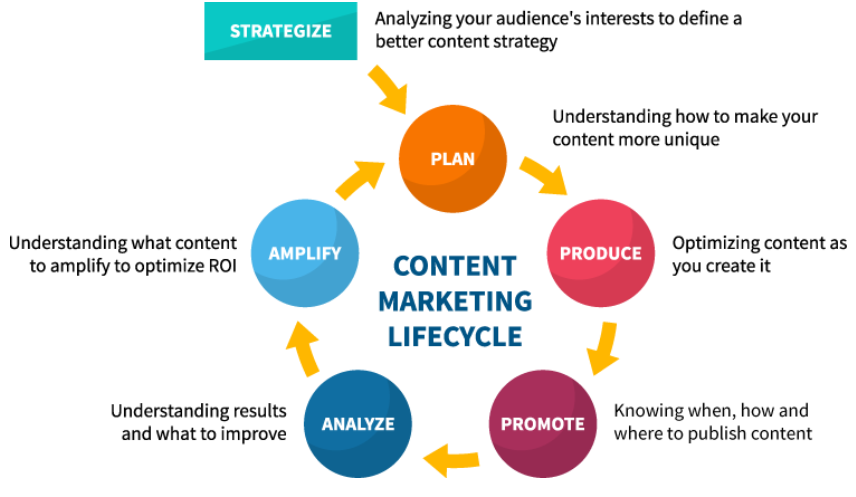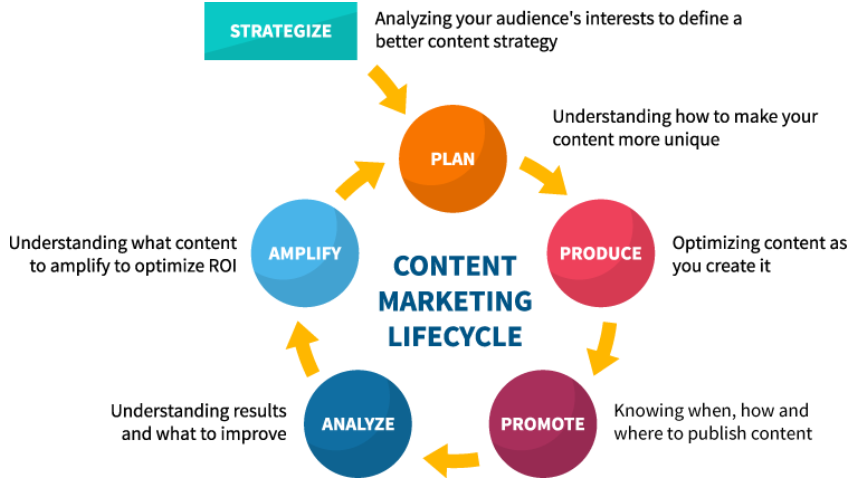


Attracting attention with your content begins with finding an interesting angle for developing and conveying your approach to your story. If the angle you approach your blog’s message or story is as boring as watching paint dry, no matter how “catchy” the headline maybe, the rest of your blog post will be just as boring and ultimately will end up garnering no attention at all. We want to avoid this at all costs.
Blogs should be created to educate, to inspire, to tell a relatable story, and ultimately to engage your target audience in any and every way possible. Blogging consistently is an essential part of any content marketing campaign.
Blogging does come with its side perks as well, such as list-building, social engagement and increased organic rankings (But that is just the icing on the cake, the gravy on the potatoes, I am getting hungry — but you understand where I’m going with this).
In a perfect world, a blog should always be able to hold the attention of a human being and leave that user wanting more, and more, and more.
Sounds tough, right? Not really — If you approach it correctly.

Things to Consider When Blogging in 2023
When trying to figure out the best angle for delivering your latest news, latest industry resources, case studies, and so on; You should always ask yourself a series of questions about your blog post content ideas:
- How can I tie my company into current events and other popular news stories, or in other words; Can I newsjack a QDF (Query-Deserves-Freshness) so that I can capture a percentage of the massive amounts of people who are currently interested in that particular news event?
- Is there another spin I can put on an old post of mine? Or can I repurpose the content that I may have written years ago to make it more relevant to today’s landscape within that topic?
- Do I have any well-known, respected clients or customers who I can gather quotes, testimonials, case studies, or recommendations from?
- Does my story have ties to seasonal changes or activities? If so, that is great, if you follow it with a more significant question. Even though this post is about a seasonal topic, what approach could I take to writing this post to make it evergreen content, or relevant to an audience each time that time of year comes around.
- Has one of our employees at our company received a special award or certification? Going further, has our company received a special award or certification? And my favorite idea of them all, do any of our employees have some sort of relatable and emotional situation outside of the office, completely unrelated to what we do or sell as an organization, that will pull on the heartstrings of the reader and potentially inspire and provoke an emotional response out of our user?
- What customer pain points do we solve for our clients? And what phases does our ideal customer go through to look for solutions to those pain points? What can we provide to make life a little bit easier for them? Whether that be a post related directly to our product, or by simply providing them with the educational resources and tools to overcome their most common workplace challenges.
- Are there any industry trends that may not be directly related to our own company that we can still comment on? Industry Updates or new Best Practices?
- Do we have any interesting statistics or case studies we can release? These case studies can be about your customers’ successful experiences with your product, or your internal marketing case studies or conversion tests to relay that useful information to your user. Perhaps an income report that goes into detail regarding your own company’s Web Analytics Data, gross revenue for the month, quarter or year, or even a post covering your business model or profit margins (In less detail, for the sake of your competition)
I could go on and on, but I am sure you get the point. Finding the right angle for your content, whether it be your latest blog post, eBook, media kit, or press release — lays the foundation for the success of that content. If you swing and miss, you’ve wasted an opportunity for media coverage.
Content is much more than creating words on a page, it is about creating experiences.” Anna Talerico
But Don’t Over-think Things, Here.
Once you find the perfect angle for your story, you need to keep your the actual content within the blog consistent and entertaining, yet focused. Remember, your reader has only a limited amount of time to view and pay attention to your story and nearly everybody online suffers from infobesity.
Focus on illustrating the bigger picture when it comes to; the who, the what, the when, the where, the why and the how questions. It never hurts to add personality to any piece of content, so be sure to take a writing approach that is natural to you as a person. Make sure to use powerful quotes to enhance your story, use plenty of visual content so that the reader can digest your story easily, and most importantly, be positive that the reader will automatically understand why your story is so important and why it should matter to them.
This means you need to get your message across as quickly and clearly as possible. Get rid of any details or opinions that don’t add value to the story.
If you do happen to have amassed many details in doing your research that doesn’t quite seem to fit within your blog’s intended message or story, you can always publish a separate article later on, or use this as a lead magnet in the form of a PDF to ensure readers opt-in to your mailing list if they are truly interested in what they are reading. This will allow you to enjoy the benefits of a steady content distribution map, it will allow you to target different audiences more effectively with each specific piece, and more importantly, this will let you test the effectiveness of your creative text copy.
However, in my opinion, the quality of your content and lead magnets will always be more important to your readership than the quantity of it.
As far as the actual content word count should go, debates arise when giving specific amounts of words, but it is generally accepted in the Digital Marketing community that blogs or pieces of content with more than 1,000 words do better in terms of ranking organically for long-tail keywords. As always, keep it consistent with your message for that post, so do not factor word count into your thought process before creating content.
Bonus Resource: 26 Stats Marketers Should Know When Preparing a Digital Strategy
Hubspot Created an Amazing Slideshare presentation regarding some very interesting stats that will most likely help you in any marketing decision you make, whether that is content creation, distribution, social media, or user-generated reviews.
What are some of the most interesting or best-performing creative concepts you’ve developed for your content pieces, blogs, or articles? Share some of your best work by leaving a comment, below.
